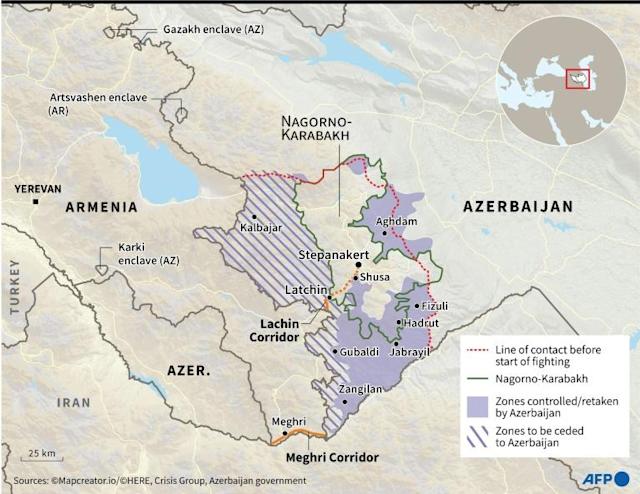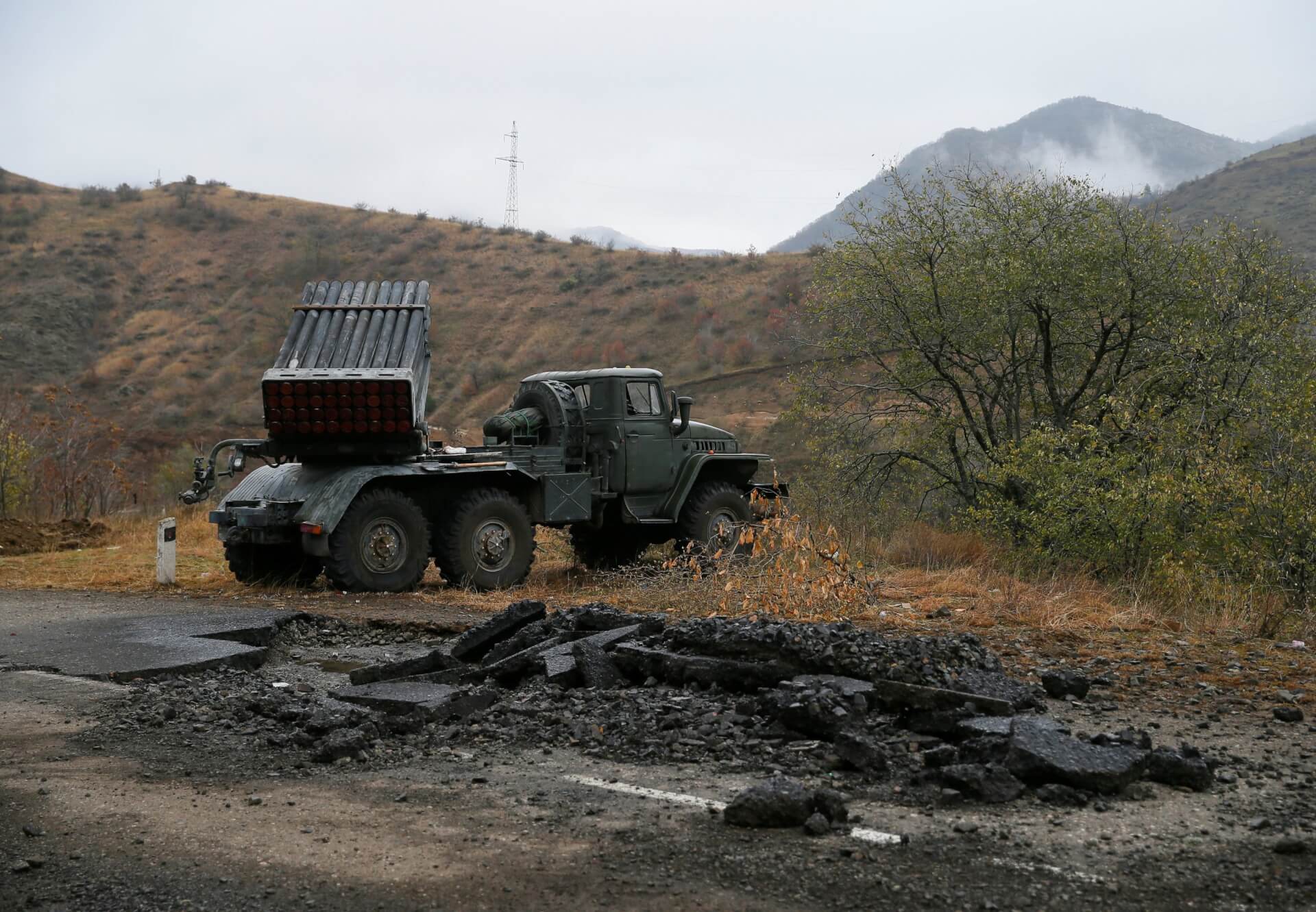At least four Armenian soldiers were killed and 15 wounded after Azerbaijan launched a military operation in Nagorno Karabakh on Wednesday. Baku has accused Yerevan of sending troops into Azerbaijan and violating the ceasefire reached after the 2020 Nagorno-Karabakh war, with both Russia and Armenia condemning Azerbaijan’s move.
The Azerbaijani defence ministry, meanwhile, said the military launched ‘Operation Revenge’ and captured several strategic locations in Nagorno-Karabakh. The ministry said it was a “retaliatory operation” to thwart Armenian attempts to capture strategic locations in areas of Nagorno-Karabakh controlled by Azerbaijan, including Lachin and Kalbajar.
The military launched multiple airstrikes and shelled Armenian positions, and “as a result, the manpower of illegal Armenian detachments was annihilated and wounded,” according to Azerbaijan’s defence ministry. The strikes destroyed Armenian artillery, armoured vehicle, and ammunition.
The potential for an explosion has increased. The US interest is to support Azerbaijan and to oppose Russia, Iran and Armenia, which, I remind you, are allies. https://t.co/wPiPS1uPnL
— Mike (@Doranimated) August 3, 2022
Calling the presence of Armenian troops in Nagorno-Karabakh a “source of danger” to regional peace, the ministry demanded the “complete withdrawal of Armenian troops” and the “disarmament of illegal Armenian units.”
In a separate statement, the ministry accused Armenia of sending “illegal military detachments” to Azerbaijani-controlled Nagorno-Karabakh, where Russian peacekeepers are temporarily deployed. The release said Azerbaijani positions came under intensive fire from the Armenia side and that an Azerbaijani soldier was killed.

Armenia rejected Azerbaijan’s accusations and called the operation a “pre-planned policy of terrorising the population of Nagorno-Karabakh” and said it was in line with Baku’s ethnic cleansing of Armenians. Furthermore, Armenia noted that it had fulfilled its commitments under the ceasefire agreement and blamed Azerbaijan for not adhering to the truce.
The Armenian foreign ministry urged the international community to punish Baku for its “aggressive behaviour” and launch international mechanisms to ensure that Azerbaijan does not violate Armenian territory. Moreover, the Armenian defence ministry claimed hours before the Azerbaijani operation that Armenian troops had returned an Azerbaijani soldier who was caught crossing the border last month, demonstrating Armenia’s efforts to engender peace and stability.
The illegal Armenian armed units remaining on #Azerbaijan’s sovereign territory are a source of continued tension and the most serious impediment to achieving lasting peace betw. Azerbaijan & Armenia. They should all be withdrawn back to Armenia asap. https://t.co/SzuVhS94YS
— Nasimi Aghayev (@NasimiAghayev) August 3, 2022
The Russian defence ministry, too, accused Azerbaijan of violating the ceasefire and of further destabilising the region. The ministry said peacekeepers are taking steps to calm tensions, including hosting a meeting between Russian, Armenian, and Azerbaijani military officials.
The European Union (EU) and the United States also expressed concerns about the escalating situation. EU foreign policy chief Josep Borrell called for an “immediate cessation of hostilities.” “It is essential to de-escalate, fully respect the ceasefire and return to the negotiating table to seek negotiated solutions,” he stressed.
US State Department spokesperson Ned Price said Washington is “deeply concerned” by the violence in Nagorno-Karabakh and urged both sides to take “immediate steps to reduce tensions and avoid further escalation.” Democratic lawmaker Frank Pallone called on the Biden administration to condemn Azerbaijan and tweeted that Azerbaijan’s aggression is “the latest example of [Azerbaijani President Ilham] Aliyev threatening the people of Artsakh.”
Renewed fighting between Azerbaijan and Armenia today.
— Visegrád 24 (@visegrad24) August 3, 2022
Here is a Bayraktar TB2 strike on Armenian positions.
Armenia is calling on the world to stop the Azeri advance.
Meanwhile, Russia is accusing Azerbaijan “of breaking the ceasefire”. pic.twitter.com/m7eY9m5mVC
The military operation was the culmination of a week of military activities conducted by both sides against each other. Armenia and Azerbaijan have accused each other of crossing their respective borders, shooting at their military positions, and violating the ceasefire multiple times during the past week.
The latest round of violence threatens to derail significant progress made between both sides to end the conflict. Aliyev has met with Armenian Prime Minister Nikol Pashinyan in Brussels twice since April, and both leaders have vowed to take steps to de-escalate tensions. In addition, the foreign ministers of Baku and Yerevan have been meeting regularly to outline measures to ensure adherence to the ceasefire.
Armenia and Azerbaijan have been engaged in constant conflict over the breakaway region of Nagorno-Karabakh since the fall of the Soviet Union. In September 2020, they fought a devastating war that led to the worst clashes in decades, killing thousands and displacing more than 100,000 people. The fighting ended in November last year after Armenia and Azerbaijan signed a Russian-brokered ceasefire deal, which stated that Azerbaijan would remain in control of areas it recaptured from Armenia and that Russian troops would be deployed in the region to ensure that calm prevails.

